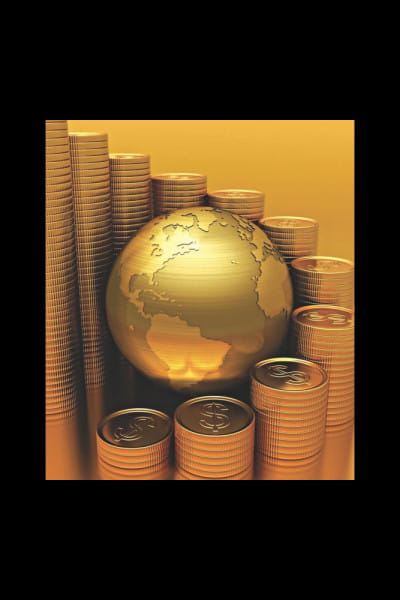A few simple ways to encourage investment

To achieve its goal of becoming a middle-income country by 2021, Bangladesh must increase its yearly private investments from 29 percent of GDP in fiscal year 2015 to 34.4 percent of GDP by fiscal year 2020, according to Mahbubur Rahman, president of the International Chamber of Commerce Bangladesh. Rahman also said that the foremost challenge Bangladesh faces in moving to a higher growth path of 8 percent plus GDP to become a middle-income country is its stagnant private investment, followed by the weak institutional capacity of the government to implement badly needed development projects.
Experts and economists, on the other hand, said that Bangladesh needed to increase investment to USD 12.5 billion for infrastructure development from the existing annual spending of USD 3.5 billion to gain any significant benefit from regional and international connectivity. This, again, will require the government to improve its institutional capacity from its current miniscule extent.
This has been exposed even more by the government's failure to utilise properly the funds that China and India had promised to Bangladesh. In regard to India, years have already passed since it had granted Bangladesh access to its first line of credit. Talks of the third line of credit have made headlines a number of times this year, although the Bangladesh government has failed to efficiently use even the first line of credit.
Meanwhile, the funds promised by China have been held up largely because of "bureaucratic" entanglements on either side. Interestingly, prior to the Chinese president's visit to Bangladesh, one Chinese official mentioned that China was concerned about Bangladesh's capacity to handle any significant amount of funds during a roundtable held by this newspaper. And that his primary concerns were about delay in project implementation/completion leading to costs skyrocketing from what were initially estimated. In a way, perhaps he was preaching to the choir, as Bangladeshis by now are well acquainted with both these issues.
However, if the government can address this, there is a chance for the country to make massive strides within a short period of time. Let me explain. First, by improving capacity, the government can move forward with the infrastructure projects much quicker. According to experts, infrastructure development "is urgently needed to invite foreign investment to Bangladesh."
According to the State Minister for Finance and Planning MA Mannan, "For more economic development, we need regional connectivity," which is already the purpose of many infrastructure projects that are currently in the pipeline. But there are still other barriers to increasing foreign investment. For example, recently the US ambassador to Bangladesh has said that "corruption, cumbersome customs procedures and poor sanitary and phytosanitary standards are major barriers to attracting foreign direct investment to the country."
We often hear our government officials pleading with foreign governments to invest more in Bangladesh. But isn't it time for our government officials to become more realistic? Instead of constantly pleading for foreign investment, a much simpler method of achieving that would be for our government to clean up its own house. After all, who else except for other corrupt governments would be willing to invest in a country rife with corruption? Naturally, no one, as corruption simply increases the risk on their investment.
And the US ambassador's concerns were not a one-off either. German Ambassador Thomas Prinz also made similar comments a week earlier, saying that corruption in Bangladesh is the main barrier to attracting foreign investment from Germany. Many European companies and individuals too have expressed their interest in investing in Bangladesh "in a bigger way," as they see the country to be a "good" investment option because of its "sizeable ready-to-work labour force" and "its fast-growing economy." However, barriers to setting up their businesses – complicated company registration process, energy crisis, bureaucratic tangles, etc. – are discouraging them from doing so.
Their views are, moreover, in agreement with the World Bank's documents that say that despite significant trade liberalisation since the early 1990s, "the procedures for clearance of import‐export cargo at borders remain cumbersome and are saddled with numerous documentation requirements and poor levels of inter‐agency collaboration." For example, a foreign investor apparently has to collect nearly 25 permissions from different government agencies and departments for starting business here.
A simple fix to this, as proposed by prospective foreign investors, would be to set up a "national single window from where investors can collect all necessary documents without any hassle or harassment."
Meanwhile, better infrastructure would no doubt also encourage greater private investment from domestic sources. For years, the government has said that the private sector must play a greater role, without understanding, for some strange reason, that the easiest way, again, for it to encourage domestic investment is by improving infrastructure and reducing corruption.
For one, better infrastructure would give domestic businesses access to larger markets (to sell their products and acquire resources from); and, two, without the burden of corruption, costs and risks of doing business will go down, improving the prospects of becoming an entrepreneur. This year, net sales of savings certificates again increased by a significant margin—8.91 percent year-on-year. This shows that individuals still do not feel confident enough to invest their wealth and would rather save for now by acquiring savings certificates.
Thus, the way to provide a massive boost to the economy is quite simple. A few minor tweaks alone, such as the ones mentioned above, can lead to much greater foreign direct investment and domestic private investment. But that tweak needs to be done by the government in regard to itself, which requires what successive governments of our nation have lacked the most—political will and admission of its own shortcomings, which, ironically, happens to be the first step necessary for any improvement.
Eresh Omar Jamal is a member of the editorial team at The Daily Star.





Comments